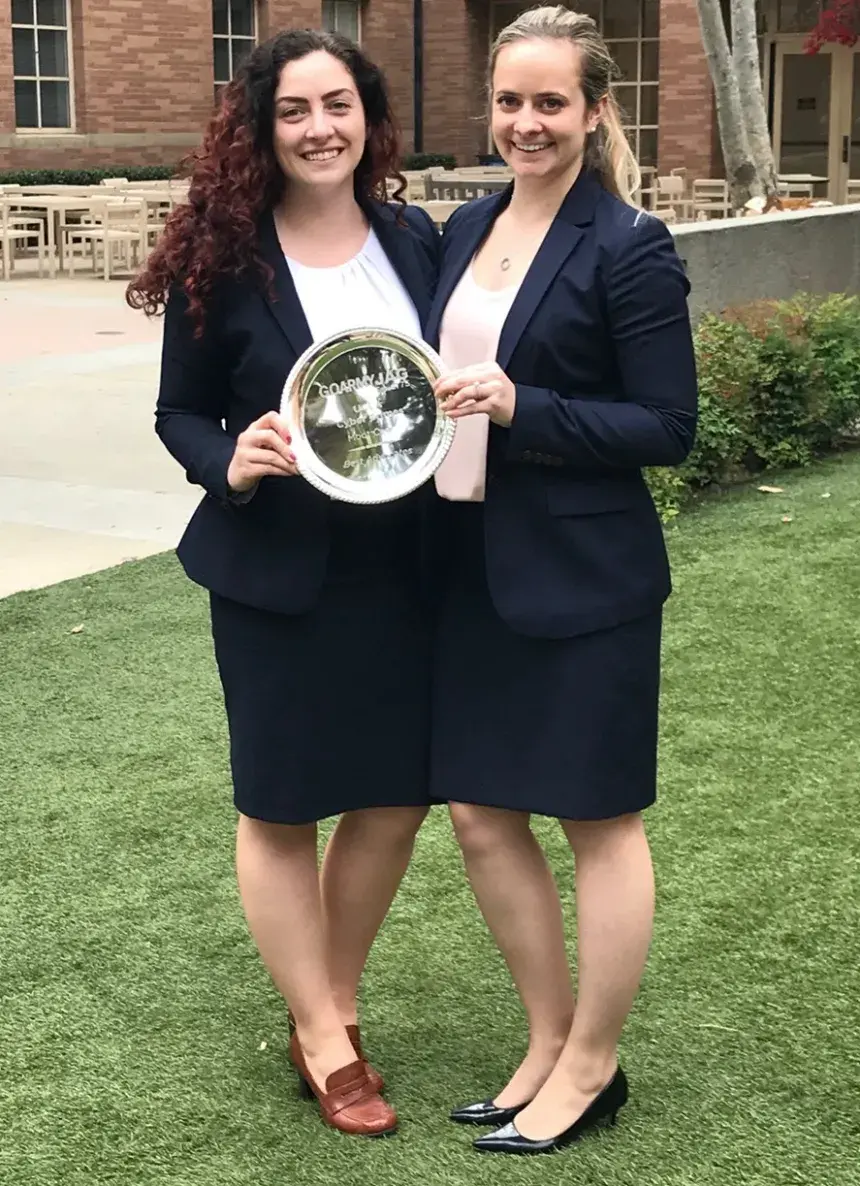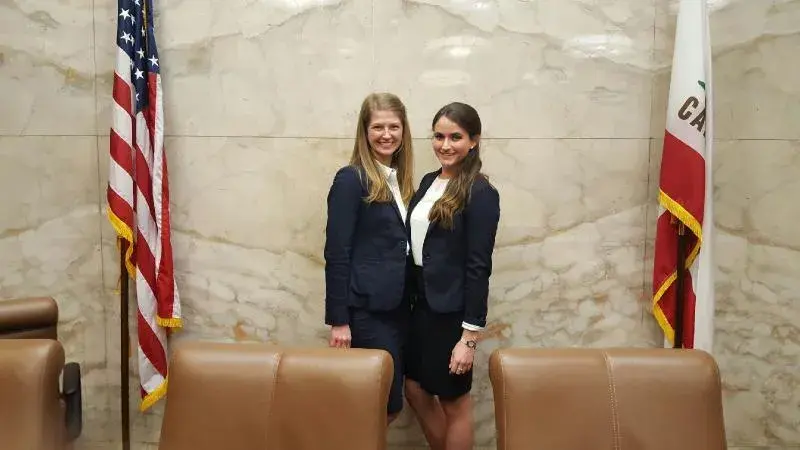External Competitions
Each year members of the RWU Law Moot Court Board compete at national and regional competitions, in teams of two or three members. RWU Law students participate in a wide variety of moot court competitions, which focus on different areas of the law including products liability, criminal law and procedure, constitutional law, and family law.
After the moot court team completes the appellate brief, team members work with distinguished Moot Court Board alumni and local members of the legal community to practice mooting before a panel of judges to develop and refine their legal arguments. Numerous alumni also support the Moot Court Board by returning to coach moot court teams. Faculty members assist with specialized subject matter by discussing and analyzing principles of law related to the competition with the team members to ensure a comprehensive understanding for oral arguments.
Recent Moot Court Successes
| Competition | Names of Competitors | Award | Year |
|---|---|---|---|
| Regent Law National Constitutional Law Moot Court Competition | Tyler Smith Hala Furst | Best Oralist 2nd Best Oralist | 2009 |
| NYC Bar National Moot Court Competition | Amy Broderick Robert Cavanagh John Meara | Regionals: Winner National: Best Brief | 2010 |
| Wechsler National Criminal Law Moot Court Competition | JP Pruett Ron Rose | Winners of the Competition | 2010
|
| Regent Law National Constitutional Law Moot Court Competition | Jonathan Cook Kristen Kirzharris Ezra Willey | 3rd Best Brief | 2011 |
| NYC Bar National Moot Court Competition | Juliana McKittrick Nick Nybo Will Wray | Regionals: Winner Nationals: Semi-Finalists | 2012 |
| GW Religious Freedom Moot Court Competition | Sydney Kirsch Dan Reilly Antonio Viana | Winners of the Competition | 2013 |
| UCLA Cyber Crime Moot Court Competition | Katherine Berling Amanda Jacober | Winners of the Competition | 2017 |
| UCLA Cyber Crime Moot Court Competition | Kelsey Peck Allison Regan | Best Overall Oral Advocates | 2018 |
| Competition | Location | Year(s) |
|---|---|---|
| Domenick L. Gabrielli National Family Law Moot Court Competition | Albany, NY | 2012-2013 |
| Elon Law Billings, Exum, and Frye National Moot Court Competition | Greensboro, NC | 2013, 2019 |
| GW Religious Freedom Moot Court Competition | Washington, DC | 2013-2014 |
| ILSA Jessup Moot Court Competition | New York, NY | 2009-2011 |
| NYC Bar National Moot Court Competition | Boston area | 2008-2019 |
| Pace International Criminal Court Moot Court Competition | White Plains, NY | 2014-2015 |
| Regent Law National Constitutional Law Moot Court Competition | Virginia Beach, VA | 2009-2011, 2017 |
| Thurgood Marshall Memorial Moot Court Competition | Washington, DC | 2016 |
| Touro Law & Religion Moot Court Competition | Central Islip, NY | 2016-2018 |
| University of Cincinnati Rendigs Jr. National Products Liability Moot Court Competition | Cincinnati, OH | 2018 |
| UCLA Cyber Crime Moot Court Competition | Los Angeles, CA | 2017-2018 |
| Wechsler National Criminal Law Moot Court Competition | Buffalo, NY | 2010-2012, 2014-2018 |


